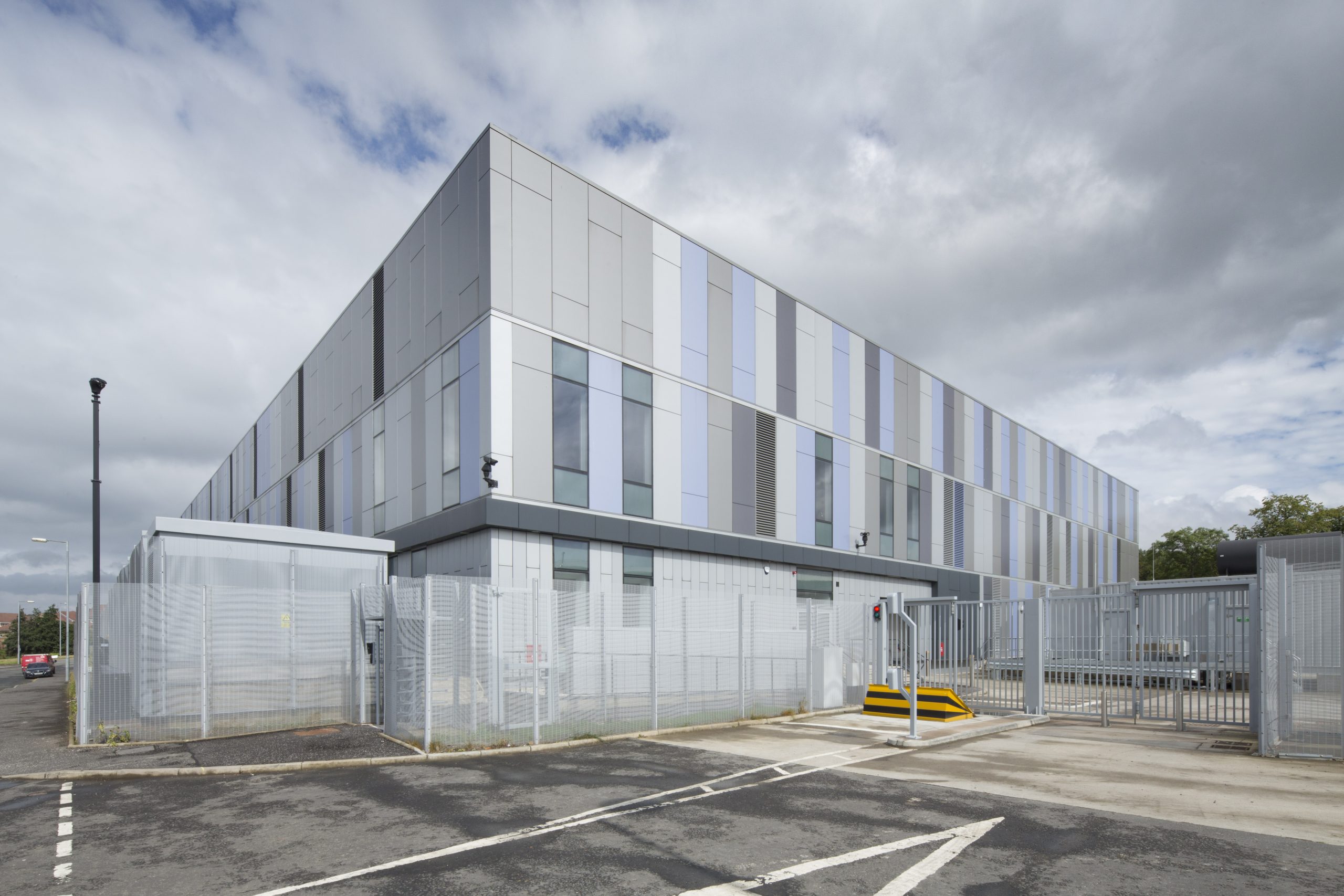IT
IT
Utilising digital transformation to provide time savings
Tendring District Council, based in Essex, have worked with Sophos and Espria for its IT security needs since 2014.
Business challenges
Several years ago, Tendring District Council implemented on-premise Sophos Endpoint Protection Advanced and was happy with the solution. More recently, the council has focussed on further digital transformation, moving all services and servers to a cloud environment.
With this in mind, and working with Espria, the council opted to transition to cloud-based Sophos Central. Completed in May 2020, Espria supported the organisation in working remotely with an ongoing priority for IT security after a minor ransomware incident caused the team to be highly aware of the prevalence of attacks in their sector.
The technical solution
The council moved to Sophos Central for cloud-based IT security for endpoints and servers with the added benefit of ransomware protection from Intercept X Advanced with EDR. The council also called in Sophos Professional Services to assist with the installation. Throughout the project, the team at the council used each step as a way of learning about the solutions, which included:
• Sophos Central: a unified console for managing Sophos products
• Intercept X Advanced for Server with EDR which protects virtual and physical servers without sacrificing performance, including one-click server lockdown
• Intercept X Advanced with EDR: a signatureless anti-exploit, anti-ransomware and root cause analysis tool that protects endpoints from advanced threats
• Professional services: consultation, implementation and configuration of solutions aligned with security needs and Sophos best practices.
Business benefits
Sam Wright is Cyber Security and Systems Manager at Tendring District Council. He lists the benefits of the Sophos/Espria partnership and moving to Sophos Central as being:
• Automation: the automation in Sophos Central when detecting and alerting potential threats eases the pressure on the IT team
• The interface: the team finds the Sophos Central interface very easy to use and issue-free, particularly when working remotely
• Threat analysis: Sam was impressed with the Sophos Endpoint Detection and Response (EDR) threat analysis in Intercept X Advanced with top threat indicators, live discovery and multiple categories and queries
• Behaviour analysis: intercept X Advanced examines the behaviour of attacks rather than definition - a different approach that provides heightened security
• Data security: device control within Sophos Central keeps data safe and the council compliant with GDPR
• Price: Sam believes he got a good deal from Sophos with customer-specific pricing
• Service: “The council is pleased with the service it has received from Sophos and Espria who are there to help whenever it’s needed.”
Sam is so pleased with Sophos’ services and the solutions provided that he has recommended them to his peers in the Essex Online Partnership - a collaboration of authorities including emergency services - and he also ran a demo for them.
“I’m always happy to recommend Sophos and Espria,” he says. “It’s easy to use, makes complete sense and empowers our technicians. Plus, Sophos is a well-established and trusted company that’s here for the long term. Sophos has definitely played a key role in our digital transformation project.
“Our technicians are very happy with Espria and Sophos Central. It makes it easy for them to drill down, review and investigate any issues that arise. It just makes sense, and it empowers our team.”
Beatrice - 14 December 2022
IT
How to keep your IT running amid power uncertainty
Power outage…what next? It’s easy to take energy for granted. It helps keep us warm, safe, productive, clean, fulfilled, and healthy. However, the latest indicators show that Europe is now going into energy crisis mode. Disruption can negatively impact in many ways. For businesses that rely on critical IT equipment, the potential repercussions of power surges and outages can be devastating. For home and residential environments, the impact of power outages is not to be understated, especially as we approach the colder winter months. This blog article talks about how you can mitigate poor power quality and availability.
Read more here.
Carly Weller - 14 December 2022
IT
News
Product
South Lanarkshire Council cuts carbon emissions with IT upgrades
South Lanarkshire Council has transformed its digital and IT provision, resulting in significant carbon savings and helping to streamline the delivery of services to the local authority’s more than 300,000 residents.
Working with DataVita, the council will save over 2,000MWh of energy annually - down from 2,222MWh to 140MWh, a 94% reduction. Emissions will also be cut by 95% by migrating data storage to DataVita’s purpose-built DV1 facility.
Modernising its IT operations will enable the local authority to reduce the environmental impact of digital systems by tackling excess energy usage and wastage. Over the next five years, an estimated 12,800MWh of energy will be saved, equivalent to the amount of electricity used annually by over 400 average homes.
The IT transformation programme is designed around a new hybrid system, combining cloud based activities and data centre hosting at the DV1 facility in Chapelhall. The data centre uses 100% renewable electricity. It also uses energy efficient ‘free cooling’ technology, which utilises Scotland’s natural climate to maintain optimum temperatures, instead of air conditioning units.
Switching data centre locations will mean the local authority sees its power usage effectiveness (PUE) ratio improve substantially, from a rating of 2.3 to just 1.18. PUE is an industry benchmark for data centre energy performance that measures how much energy is used by the IT equipment, with 1:1 the optimum ratio.
Brian Teaz, Head of Information Technology at South Lanarkshire Council, says, “We have set ambitious targets including a 75% reduction in greenhouse gas emissions by 2030. Over the last six years we have already reduced that by more than 25%. There is still scope to do more, and this new IT approach is a good example of how modernisation can come with real environmental benefits.
“In recent years, as services have been digitised and moved online, our IT footprint has expanded quickly to give residents smarter and more flexible ways to access critical functions. The time was right to upgrade our digital infrastructure in line with new requirements and working with DataVita has enabled us to address sustainability at the same time, making significant carbon savings.”
The contract was awarded through the Scottish Government’s Cloud Services Framework, established in 2019 to support the government’s digital strategy. IT supplied through the framework includes public and private cloud, colocation, hybrid cloud, community cloud, and cloud transition activities.
Danny Quinn, Managing Director at DataVita, says, “Sustainability is high on the agenda for most organisations, but there is a common misconception that making changes either comes with a downgrade in terms of performance or substantial financial investment. Our recent experience with South Lanarkshire Council proves otherwise, and we have simultaneously upgraded the IT systems and reduced its carbon footprint. With the capability to deliver some of the most advanced technology currently available, our team has designed a flexible future-proofed system to cater for the council’s needs in the years to come.”
Beatrice - 30 November 2022
IT
Projects
Marist College Canberra unlocks IT autonomy with Nutanix
Nutanix helped Marist College Canberra simplify its IT infrastructure and enhance the learning experience of its students and educators.
Established in 1968, Marist College Canberra is a Catholic school for boys from years four to 12. The school’s 200 teachers and staff provide a diversity of academic, spiritual, cultural, and personal development opportunities to its 1,800 students.
Sam Walton, ICT Systems and Operations manager, and his five-strong team are responsible for providing the IT infrastructure and rolling out new projects that keep students connected and continue to improve their learning experiences.
“From an IT perspective, schools are always a complex environment,” Sam says. “Not only are we a relatively large school with more than 2,000 end-users including students and teachers, but we also offer many extracurricular activities. The role of IT is to support all the different departments and all the applications they want to run in a single environment.”
Sam says that maintaining such a complex environment with legacy three-tier data centre architecture including servers, storage and networking - a system created decades ago - would be a resource-intensive challenge. A recent investment in Nutanix hyperconverged infrastructure, however, freed Walton and his team to deliver greater value to the school.
Sam adds, “Nutanix is the heart of our digital learning experience. We went from a full rack of SANs (storage area networks) and hosts which were much more complicated and required a lot more maintenance just to keep running, to Nutanix which is essentially ‘set up and forget’.
“In our IT team, we have to know so much about everything, so the really good thing about Nutanix is that it just works - I can’t be dedicating resources to maintaining the environment every week. The infrastructure we have now means my team can focus on more strategic projects for the college.”
Another benefit, according to Sam, has been the reduced hardware footprint which has in turn reduced the college’s energy consumption.
“IT infrastructure, particularly outdated infrastructure, can be a major energy burden,” he says. “Instead of a full rack, we’ve gone down to six RU (rack units) in our production environment. This has reduced power consumption to the point we’re now downsizing our UPS, which provides emergency power if the main power source fails.”
Marist is also using three Nutanix nodes for its on-campus Disaster Recovery (DR) environment which keeps systems going in the event of an outage, and another three nodes for object storage, which enables greater data scalability for the school.
“DR is now instant,” Sam says. “For example, late last year I had to move everything to the DR site and performance wasn’t impacted at all. No one noticed any difference. This has enabled me to sleep at night because I know now if something ever goes wrong, we can seamlessly switch over to DR.”
Jim Steed, Managing Director - ANZ at Nutanix, says Marist College Canberra has ensured the best learning experience for its students, both today and into the future.
“With its IT team liberated from having to keep the lights on, Walton and the Marist IT team can focus on the things that matter - like improving the student and educator experience - rather than putting out fires and constant maintenance. At Nutanix, we believe IT infrastructure should be invisible so organisations like Marist can focus on what they do best - educating the next generation of Australian leaders,” Jim concludes.
Beatrice - 29 November 2022
IT
iM Critical wins award for start-up innovation
iM Critical has announced that it has won the 2022 Tech 50 award from the Pittsburgh Technology Council for the most innovative start-up. The 26th annual event was a gathering of over 600 people - a who’s who of local companies, non-profits, and technologists - highlighting the impact they have made in the region.
PTC President and CEO, Audrey Russo, says, “It is truly the biggest night in Pittsburgh’s tech ecosystem each and every year.” With this recognition, which was awarded to the top company in each of 10 categories, iM Critical underscores its role as a resource within this rapidly growing, technology-rich market and amplifies its commitment to delivering mission-critical facilities and IT services.
“We are thrilled to be recognised in this way in Pittsburgh, aka Silicon Valley East - a market where iM Critical is delivering sustainably-minded, scalable, high-performance computing platforms. We’re honoured to be highlighted among a group of such fantastic innovators,” says Michael Roark, CEO of iM Critical. “Our unique breed of plug-and-play IT ecosystems, built with all the most pressing IT mandates in mind, offer a truly advantageous space for growth and innovation across healthcare, academic research, AI, IoT, smart cities, and more in an HPC-hungry location. We’re proud to support this incredible market with next-generation sustainability and robust, versatile solutions as it continues on its technological trajectory.”
iM Critical’s flagship 10MW, high-performance modular data centre campus in Pittsburgh offers a purpose-built response to the growing mission-critical needs of the marketplace. The company’s full-stack IT solutions and six-nines environment are especially valuable within the greater Pittsburgh market, which has traditionally been constrained by a lack of optimal data centres. iM’s solution enables crucial deployment densification and promotes better efficiencies for supercomputing requirements, offering sustainable advantages where many thought they may never find them. In addition to owning and operating data centres, the company factory builds modular, scalable, and sustainability-focused solutions to revolutionise the way data centres are consumed for the future of high intensity workloads and business goals.
iM Critical will be deploying its modular data centres on its phase-one modular campus in December 2022.
Beatrice - 22 November 2022
IT
Product
NAFFCO FZCO leverages Arcserve 9000 series appliances
In the business of creating and selling safety products, secure IT solutions are a sacrosanct requirement. With more than 15,000 team members - including 2,000 engineers and over 6,000,000ft2 of manufacturing facilities - the NAFFCO FZCO's IT department is crucial to handling critical business applications.
However, prior to installing the Arcserve appliances in its main Dubai branch, the company was facing multiple issues, including slow backup performance and even incomplete or failed backups. As the company has grown over the last two decades, the organisation needed IT solutions that were stable and reliable, had multi-site replication, as well as built in data and system backups from ransomware attacks.
That's where Arcserve appliances came in. Over the last six months, the company has reported an increase in productivity, as well as application performance and a healthy return on investment.
The challenge
In its vision to become the world's number one provider of innovative solutions in protecting life, environment and property, NAFFCO's IT infrastructure needed a massive upgrade. According to Mohannad Hennawi, the organisation's Group IT Manager, who manages a team of 20 IT staff team members, the company's previous systems were severely lacking when it comes to backup performance and data security.
After a complete IT infrastructure review, Mohannad noticed that slowly and, many times, incomplete backup performance was hampering his team's and the larger organisation's overall performance. More specifically, unsuccessful backup on email exchanges, data protection and ransomware were proving to be troublesome for the company.
To modernise its operations and further strengthen its data resilience, NAFFCO needed a new data protection solution that was cost-effective, scalable and flexible with integrated cyber security features to secure its critical digital assets.
The solution
Working closely with Arcserve local partner Gerab, the 9360DR and 9096DR were deployed in Dubai and Abu Dhabi to protect NAFFCO's 45 physical servers and 100 virtual machines and streamline the organisation's environment.
Arcserve appliances provide a self-contained, ‘set and forget’, secure DR and backup solution architected global source-based deduplication, multi-site replication, tape integration, automated data restore capabilities and assured recovery. "After considering and comparing against many vendors, we finally chose the Arcserve appliances as they are easy to manage and whilst being feature-rich, with full cyber security protection against ransomware," says Mohannad.
To protect data and system backups from ransomware and other types of malicious attacks, the Arcserve appliances include the Sophos Intercept-X Advanced for Server advanced endpoint protection that combines a signature-based and signatureless malware detection, a deep learning neural network, anti-exploit technology, CryptoGuard anti ransomware and WipeGuard technologies to stop the widest range of end point threats.
"After considering and comparing against many vendors, we finally chose the Arcserve appliances as they are easy to manage whilst being feature rich, with full cyber security protection against ransomware," says Mohannad.
While the implementation took three days to execute and a week to go online, Mohannad says the process was seamless and ‘smoothly done.' "The management interface is quite simple to understand and use," he comments. "We would recommend providing deep technical training for the team in the future."
The result
With the assistance of Gerab, NAFFCO first deployed the 9360DR in Dubai's data centre in February 2022. It has more than met the company's needs and expectations, so much so that it led NAFFCO to also purchase the 9096DR for its Abu Dhabi branch.
Having seen results within the first week of deployment, the company's Group IT manager is satisfied with how the solutions have helped in increasing productivity by 100%, as well as how it has led to 50% more seamless application performance, and 50% savings in the cost of operations.
In the future, the company also aims to install Arcserve Appliances at its Qatar and Saudi Arabia branches. "We need to plan for a backup solution which will be compatible with cloud solutions," concludes Mohannad.
Beatrice - 21 November 2022
Infrastructure
Infrastructure Management
Internet
IT
Networking
Telecoms
Neterra launches a new fibre metro network in Sofia
Neterra has built and launched a new, fast and secure fibre metro network in Sofia, the capital of Bulgaria. It covers the entire capital, including all important business centres, central streets, and boulevards.
Through it, the company offers internet for businesses, protection from DDoS attacks, other connectivity services and media streaming. Qualified engineers are responsible for maintenance and provide technical support 24/7.
Neterra's new network has several major advantages compared to the networks of other operators. It is the only fibre network that reaches all the data centres in Sofia, enters them, and connects them. This includes both Neterra's data centres and those of other operators.
Another benefit is that cables are run deeper underground and in protected conduits to prevent risks of outages.
For the Sofia fibre metro network, the company uses the most modern and high-quality equipment - from cables to optical distribution frames (ODF) and connectors. As a result, the connection is of exceptional quality.
In the capital of Bulgaria, Neterra maintains over 550 active business services and consciously invests in reliable components.
Thanks to the large capacities set in advance, Neterra's metro network is expected to meet the needs of businesses in Sofia for years to come.
At the same time, it is connected to the Bulgarian core fibre network of the company, which connects all major Bulgarian cities such as Varna, Veliko Tarnovo, Burgas, Plovdiv and Ruse.
Beatrice - 3 November 2022
Data Centres
IT
News
Schneider Electric research studies reveal sustainability action gap
Schneider Electric commissioned two independent research studies focused on sustainability in IT and data centre operations, and the results reveal a disconnect between intent and action, indicating most of the industry is still at the beginning stage of its sustainability journey.
The two studies were conducted by analysts at 451 Research and Forrester. They collected data from nearly 3,000 global participants, including the largest colocation and cloud providers, and IT professionals across many segments and organisation sizes. The 451 Research paper revealed a perception-versus-reality dilemma, with many enterprise organisations believing their sustainability programs are more advanced than they are, as ‘the maturity evaluations of nearly half of respondents (48%) did not match a previous answer.’ The Forrester paper focused on colocation and found that 73% of organisations ranked sustainability as their second business priority, but only 33% say they have created a strategic sustainability plan.
“The research clearly demonstrates that across the data centre and IT industry, there is a sustainability action gap - the intention appears to be there, but action is lacking,” says Pankaj Sharma, EVP of the Secure Power Division, Schneider Electric. “Of course, IT professionals understand and have taken steps to address sustainability. But what we lack, with some exception, are comprehensive and supported sustainability action plans and measurable targets to create the change required to address the climate crisis. These two research papers have documented a sustainability action gap and that is our collective challenge to address."
Understanding the status of industry-wide sustainability initiatives
Schneider Electric commissioned the two independent research studies, which were designed to help the industry better understand the maturity of sustainability initiatives.
451 Research White Paper: Sustainability at the Edge
The paper researched more than 1,150 medium and large enterprises worldwide, representing more than 20 verticals and their sustainability efforts with distributed IT resources.
Researchers determined that many enterprises believe they are further along in their sustainability journeys than they actually are. For this group, the main driver of sustainability is business value and firms start with measuring energy usage then expand into other sustainability metrics and tools. The greatest challenges in their sustainability journeys include optimising energy usage, followed by obtaining consistent data and metrics (for leaders/advanced firms) and lacking skilled staff (for starter organisations).
The leadership paper from Forrester: Reimagine Colocation Strategy with Sustainability Front of Mind
Researchers polled 1,033 global sustainability decision-makers and colocation providers worldwide, with the objective of exploring sustainability drivers in the colocation provider industry. The study also explored the major challenges for colocation players and where they are investing the most across the technology stack.
The paper found organisations lack a strong comprehensive strategy for the sustainability programs, with only 33% saying their business has created a strategic sustainability plan. This indicates that the industry is still at the beginning of its sustainability journey. The paper determined that moving forward, a key piece of sustainability success will be finding the right partner to help organisations succeed. It also found that businesses that hired an outside sustainability consulting firm as part of their sustainability initiatives are 33% more likely to be high maturity.
Beatrice - 12 October 2022
Data Centres
IT
News
Security
iM Critical is a finalist for Pittsburgh Technology Council’s Tech 50 award
iM Critical has announced that it has been selected as one of the Pittsburgh Technology Council’s 2022 Tech 50 Finalists. With the recognition as a finalist for these awards, iM Critical cements its status as a key technology innovator in Southwestern Pennsylvania. iM Critical’s flagship high-performance Pittsburgh data centre has created a purpose-built response to the growing mission-critical needs of the marketplace, which is often constrained by a lack of optimal data centres and supports the exponentially increasing demands of high-performance computing (HPC) environments.
Slated for availability in Q4 2022, the 10MW modular Pittsburgh campus in Wilkinsburg will deliver full-stack IT services in a six nines environment. The company’s technologies and innovative data centre build methods deliver ground-breaking HPC options that empower evolving IoT, cyber security, 5G, smart city, robotics, academic research, and AI applications. By provisioning uniquely modular, highly efficient, scalable, customisable, and sustainability-focused solutions alongside robust space power and connectivity, iM Critical is revolutionising the way data centres are consumed for the future of high-intensity workloads and business goals.
“Pittsburgh is where we are planting the flag for iM Critical’s modular HPC data centres. As a company that’s innately focused on being a pillar of the communities where its facilities reside, we’re honoured to be recognised as a finalist for this award by the Pittsburgh Technology Council,” comments Michael Roark, CEO of iM Critical. “We’re thrilled to be a source of support for Pittsburgh’s HPC community, offering lower Power Usage Effectiveness ratios (PUEs) in the data centre, along with on-site renewables, a host of monitored sustainability metrics, and more to help organisations reconcile increased demand for both power and eco-consciousness.”
This Pittsburgh facility, along with the company’s other data centre and enterprise-class connectivity hub in Miami, enable customers to meet the five most pressing mandates of the evolving technological world:
Addressing climate change with sustainable, energy-efficient data centre operations
Migrating to the edge to satisfy needs for highly available, accessible, and fast-moving decentralised platforms
Accelerating IT outsourcing for greater ease and transitions to OPEX spending
Transitioning to a more intelligent factory-built modular approach to create buildings that gain efficiencies and feature seamless expansions
Meeting the burgeoning need for HPC platforms capable of supporting next-gen use cases
The finalists will be celebrated on 9 November 2022, at the 26th Tech 50 Awards ceremony in Pittsburgh.
Beatrice - 12 October 2022
IT
Siemon signs new distribution partner in Ukraine
Siemon has said that it is pleased to announce that it has signed a new partner in Ukraine: DEPS is a leading value-added IT distributor that specialises in supplying integrated communication solutions to Ukrainian internet service providers and medium to large corporate end-users across different vertical markets.
Siemon has selected the new partner thanks to its customer-focused approach and established relationships with installers, integrators and end users in the Eastern European market, including Ukraine, Serbia, and Moldova. DEPS was also chosen for its leading pre-sales, marketing, technical and after-sales service, as well as the speed of delivery.
“DEPS is a very well-established business, supporting leading organisation in Eastern Europe in deploying data centre infrastructure as well as enterprise and industrial IT networks”, says Siemon Sales Manager, Dan Vout. “With the support of our new partner, we plan to offer our extensive range of network infrastructure products to these markets, support customers with our technical and design expertise and quickly deliver products for new projects.”
As an essential part of its cooperation, Siemon will be providing comprehensive training for new certified installers and the company’s technical team via a newly developed training programme to ensure customers of consistent quality and the best performance standards.
Commenting on the new partnership, Oleksandr Mylnikov, Product Manager at DEPS says: “Siemon has a proven track record of technology innovation. The company’s high-end infrastructure products perfectly complement our range and will helps us extend our offerings to new and existing customers. Currently, many large organisations are moving their data centres and need both rapid and future-proof deployment in new areas. Therefore, timely delivery of reliable products including modular IT infrastructure that is easy and fast to set up, supported by industry-leading structured cabling systems, is key to ensure the operation of essential business services and communications.”
www.siemon.com
www.deps.com
Beatrice - 26 September 2022

Head office & Accounts:
Suite 14, 6-8 Revenge Road, Lordswood
Kent ME5 8UD
T: +44 (0)1634 673163
F: +44 (0)1634 673173









